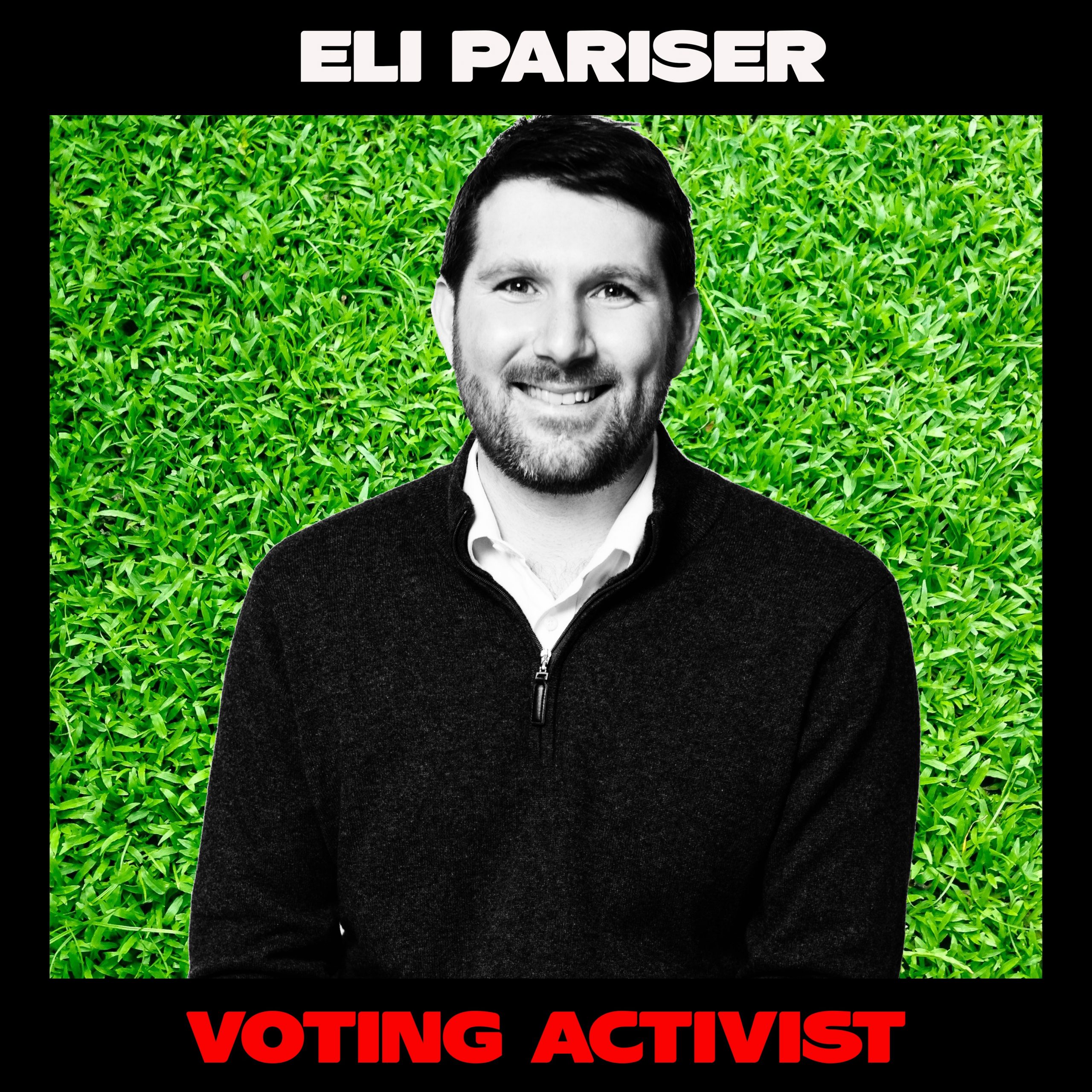How We Can Actually Use The Internet for Good Things
This podcast is patron-funded and ad-free! Please support us on Patreon for as little as $1. For a post about this entire podcast (stories, photos, links, reading list, transcript and more) go to: https://www.patreon.com/posts/42535394
IT IS THE EVE OF THE PRESIDENTIAL ELECTION and things are crazy and scary on the Internet right now. Information is nine-dimensional and hard to trust. If you’ve seen “The Social Dilemma” and learned more about the dark-profit side of the internet, you may be considering throwing your laptop off a bridge. Eli Pariser has been paying attention to this stuff for ages. He’s an author, activist, and entrepreneur focused on how to make technology and media serve democracy. He became executive director of MoveOn.org in 2004, and then he went on to co-found Upworthy.com, and he wrote a book called “The Filter Bubble: What the Internet Is Hiding from You”. We met up at a TED conference in Scotland and talked wide and deep about how the Internet is like a coity, why it is so hard to be an artist in America, how to have empathy for people you don’t agree with, the struggle to raise children with the right amount of determination and grit, and how shame is a cultural tool to create conformity.
Episode 5 of The Art of Asking Everything: Eli Pariser: How We Can Actually Use The Internet for Good Things is out now wherever you get your podcasts.
Here’s a link to all the places you can get and subscribe to the podcast: https://linktr.ee/AskingEverything
Here’s a link to info about the patron-only podcast book club:
https://forum.theshadowbox.net/t/eli-parisers-filter-bubble-for-discussion/5964
Show notes:
Description
Amanda Palmer presents an intimate conversation with Eli Pariser, recorded July 24, 2019 in Edinburgh, Scotland.
Eli Pariser wants to make technology and media serve democracy, instead of the other way around. He is an author, activist, and entrepreneur who became executive director of MoveOn.org in 2004, where he helped pioneer the practice of online citizen engagement. Eli is also the co-founder of Upworthy, a website for meaningful viral content, and Avaaz, a global citizen’s organization. His book, “The Filter Bubble: What the Internet Is Hiding from You” not only introduced the term “filter bubble” to the world, but also kicked off a conversation about online discourse that has only become more pressing. He is the author of two TED Talks that focus on social media’s responsibility to the greater good. He currently co-directs, with Talia Stroud, the Civic Signals Project, which aims to support the creation of more flourishing digital public spaces. Check out his recent piece in Wired about how to create public spaces online.
In this episode we talk about how we should attribute people’s actions to their situation instead of their character, controlling your environment to change your behavior for the good, applying urban planning theories to The Internet, inviting in the things you want in your life, why it is so hard to be an artist in America, having empathy for people you don’t agree with, the struggle to raise children with the right amount of determination and grit, and how shame is a cultural tool to create conformity.
TED:
https://www.ted.com/speakers/
Civic Signals:
http://civicsignals.io/
Wired:
https://www.wired.com/story/
No ads.
No sponsors.
No censorship.
We are the media.
Exclusive content is available to Patrons only.
Go to Patreon.
Become a member.
Get extra stuff.
Join the community at patreon.com/amandapalmer
CREDITS:
Thank you, of course, to my guest Eli Pariser. The engineer for this interview was Liam Tate, in Edinburgh, Scotland.
The theme song is called “Bottomfeeder” from my 2012 crowdfunded album Theatre Is Evil. I would like to give a shout-out to Jherek Bischoff, who arranged the beautiful in-between-y orchestral music that you heard in this podcast, those are all little snippets from my latest album, There Will Be No Intermission, which you should listen to if you like really sad songs. Jherek took motifs from my songs, and made those lovely arrangements. And you can go support Jherek over on his Patreon, he’s a fantastic musician, and your support would mean a lot to him.
To access all the music that you heard in this episode, you can go to the new and improved amandapalmer.net
A million thanks to my podcast assistant, social media helper, and additional engineer Xanthea O’Connor. This podcast was produced by FannieCo. Thanks always to everyone at Team AFP: Hayley, Michael, Jordan, and Alex. I love you guys so much, thank you for everything you do. Extra special thanks to Nick Rizzuto, Brittney Bomberger, Allie Cohen, and Braxton Carter.
This podcast would not be possible without patronage. I currently have 15,000 people who are supporting me so that this podcast can have no ads, no sponsors, no censorship, we can just be the media, make the media, and say the things we need to say, without any middle man. Special thanks are due to my high level patrons, Simon Oliver, Saint Alexander, Birdie Black, Ruth Ann Harnisch, and Leela Cosgrove.
Please go to my Patreon, become a member, and help me make this. All of my patrons also have access to a follow-up live chat that I am doing with almost every podcast guest. That is very exciting, I do it every Friday. If you get on the Patreon, you can join us, ask questions, and be part of a smaller conversation. I also make a Patreon post about every podcast, with behind the scenes info, and pictures, and notes.
